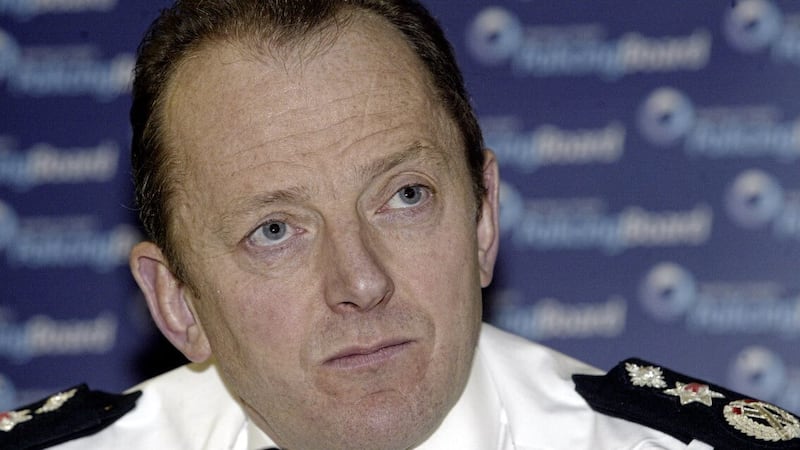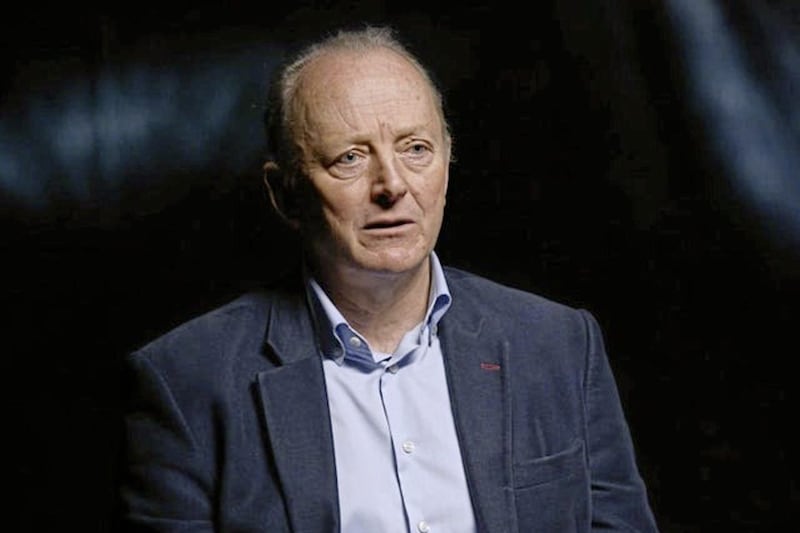FORMER PSNI chief constable Hugh Orde has described how the setting up of the Historical Enquiries Team (HET) in Northern Ireland was "the only original idea I have ever had in policing".
Delivering the second annual Seamus Mallon Lecture, organised in memory of the late SDLP deputy first minister, Sir Hugh also spoke about the implications of Brexit on the land border between Northern Ireland and the Republic, saying they have the potential to de-stabilise communities and increase pressure on police.
He also said he hoped "political failures" around the consequences of leaving the EU were not used as an opportunity by people who wanted to return to violence.
Organised by the John and Pat Hume Foundation, the lecture at Ulster University in Belfast was followed by an 'in-conversation event' with Professor Des Rea and Denis Bradley, first chair and vice-chair of the NI Policing Board.
Sir Hugh, who served as chief constable from 2002 to 2009, began his lecture by discussing the Patten Report, describing it as an "excellent policing model that has far wider application".
The 64-year-old revealed that when he travels to other countries "some on the cusp of moving from an armed struggle towards a difficult peace" he always carries two copies of the report "one for me and one to leave behind".
He also said the complications around a land border post-Brexit were "blindingly obvious" before the referendum in 2016.
"The border between the north and south, that enjoyed a degree of constructive ambiguity facilitated by shared membership of the EU is a cause for deep concern.
"Since the vote to leave took place, the utterly foreseeable complications based on a land border have come to the fore.
"It is not for me to comment on the tactics deployed by the different political parties to deal with the current arrangements that were agreed by the Government during the leave negotiations, but the fall-out has in my judgment the real potential to destabilise communities, increase tension and inevitably put additional pressure on policing.
"The lack of local governance clearly doesn't help.
"Trying to fix a problem that was so blindingly obvious to anyone that had the most basic understanding of what leaving the EU would mean post-event will be difficult, bordering on impossible in my judgment."
Sir Hugh said concerns he had raised about a hard border ahead of the referendum were dismissed as "scaremongering".
"I hope the uncertainty created by these political failures are not seen as an opportunity by that tiny minority who want to drag us backwards," he said.
Discussing the establishment of the HET, set up in 2005 to investigate 3,269 unsolved murders committed during the Troubles, specifically between 1968 and 1998, Mr Orde said: "It was the only original idea I have ever had in policing, and it is one of which I am very proud.
"The HET existed, was working through the cases.
"It answered directly to me and was held in high regard by those who engaged with it.
"I remain convinced that if it had been allowed to run its course many more families would have had more information about their case".








